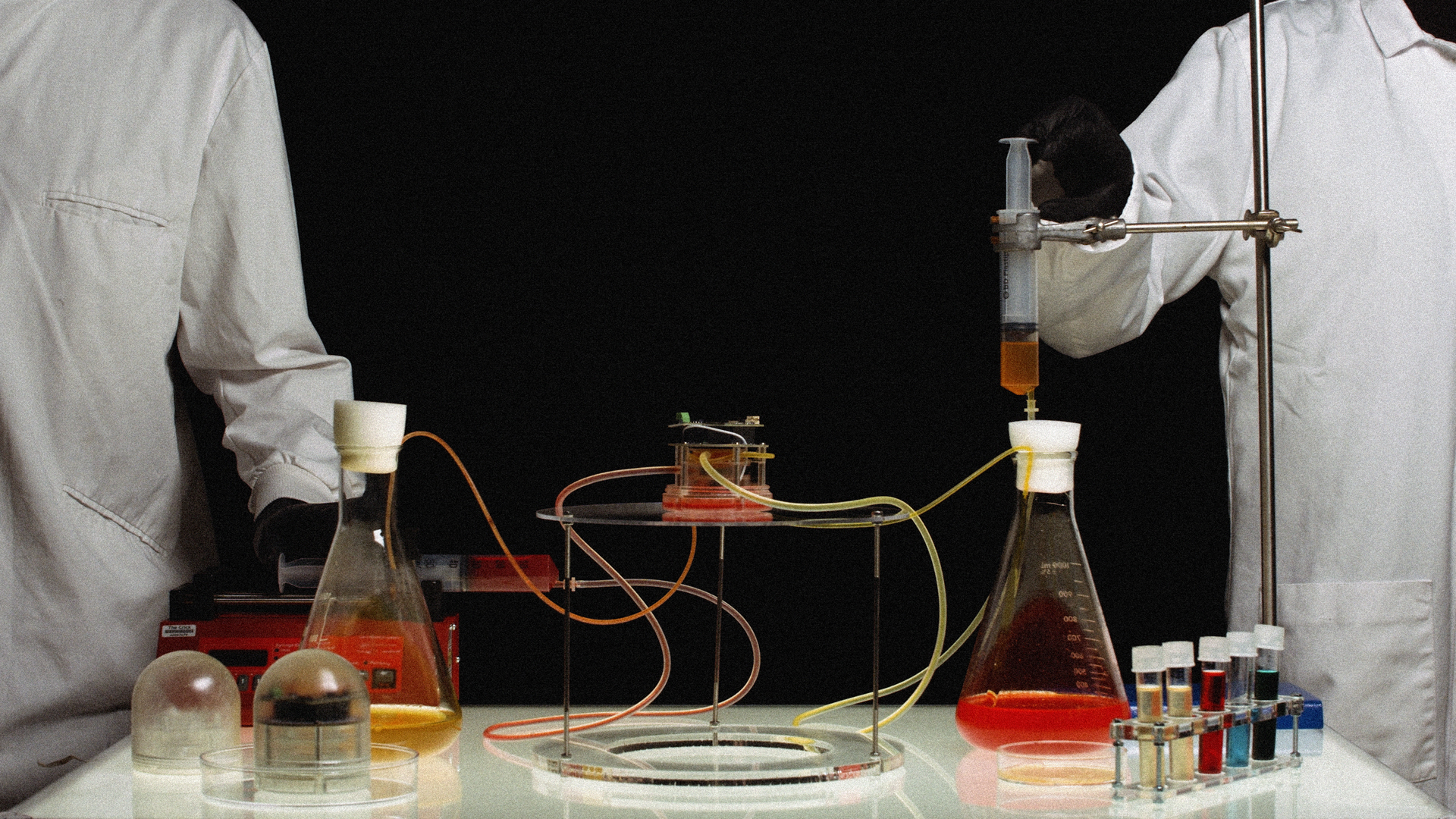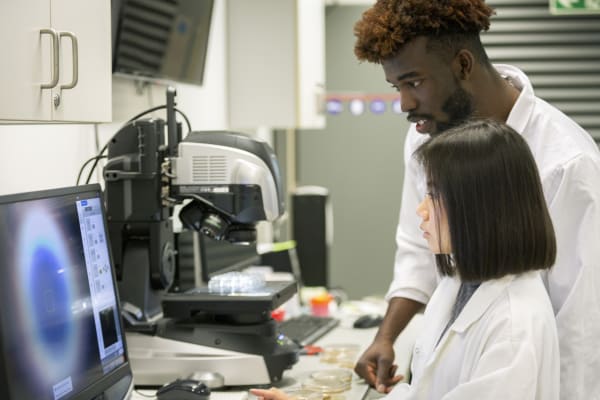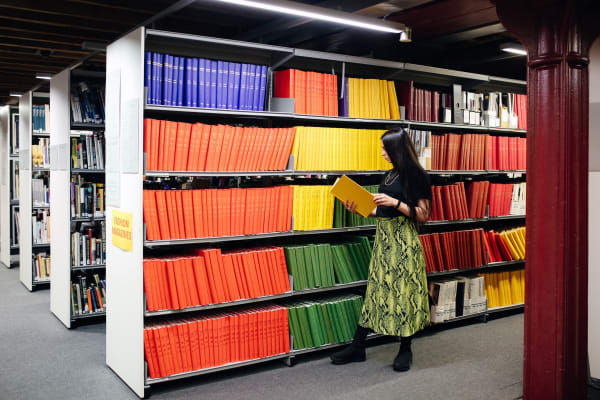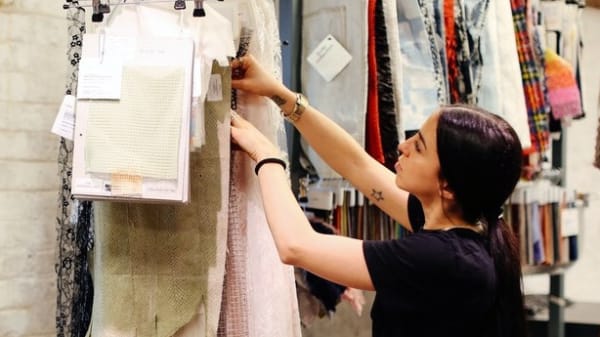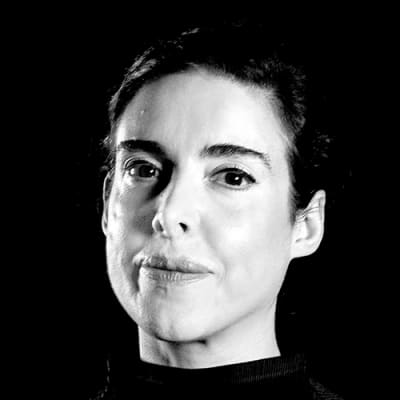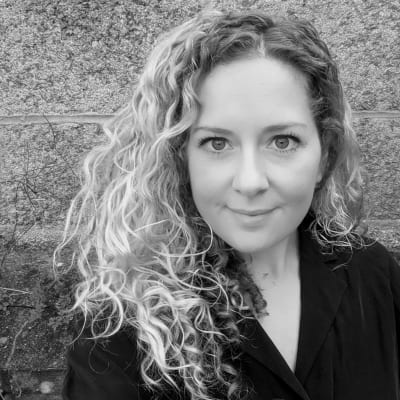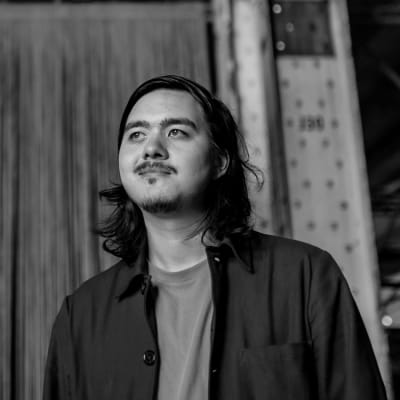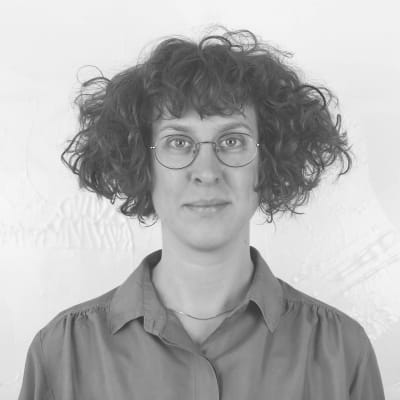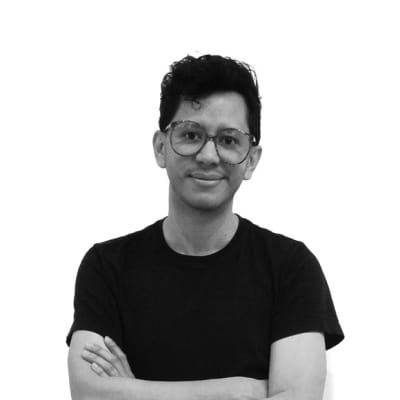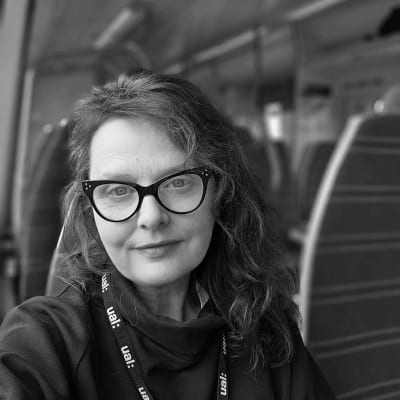Course units
MA Biodesign gradually guides you towards a design enquiry by developing a biodesign agenda in a topic related to your interests, knowledge and skills in agreement with your tutors. You will be expected to engage with relevant theoretical, scientific, design, and cultural references aligned with the course emphasis on eco-literacy, eco-activism, bio-aesthetics and bio-ethical issues related to responsible use of living organisms, potential impacts on ecosystems, and the implications of manipulating biological systems.
Unit 1: Introducing Biological Systems
This unit establishes the foundations of biodesign with the integration of the living sciences in design practices. The discipline is introduced by looking at complex systems, natural and artificial intelligence alike across multiple scales and time dimensions to help understand interactions between living and non- living systems. This understanding of complex interconnectedness and relationships between the living and the non-living is a core component of the unit’s overall agenda.
The unit is structured with a series of taught sessions where you will be introduced to laboratory protocols and explore a range of bio-informed design strategies in design briefs. The unit will include field work and lab sessions that teach students how to investigate, collect, observe and monitor biological systems. These are then grown and manipulated in the lab where design strategies will emerge that drive new forms of seeing, thinking and making.
The design briefs vary in duration and require team-based learning, development, and submissions. Some projects in this unit may incorporate external scientific or industrial partners. Teaching will introduce you to fundamentals of biology and scientific protocols relevant to cross-disciplinary design research.
Unit 1 concludes with the submission of a biodesign portfolio that illustrates and documents all the assignments and design briefs. You will also complete an oral and visual presentation communicating your work. The projects will require predominantly group work and you will be expected to be proactive, responsive, and collaborative in your learning.
Unit 2: The Collaborative Unit
This unit provides opportunities for cross-course creative and collaborative practices in relation to global challenges. The unit explores a range of thematic, experimental, and applied approaches to cross-disciplinary research, enquiry and knowledge exchange. The aim is to establish a framework for co-operation across the College in relation to our shared values in relation to social responsibility.
This unit explores the potential of collaborative practice and equips you with the ability to apply cross-disciplinary approaches through collective agency. It supports you in building temporary communities of practice and interest that combine different expertise, sources of knowledge and working methods beyond the single discipline or subject. The unit explores how relational and networked-based practices can create positive impact, based on a shared concern for a specific scenario, context or place relating to humans and non-humans. The focus is on how we might create or enable common and shared well-being.
Unit delivery will include teaching and learning in cross-course groups to enable a deeper level of debate and peer critique.
Unit 3: Exploring Biodesign Practices
Unit 3 aims at exploring a spectrum of practices in the Biodesign field, supported by the development of design research through interdisciplinary methods. The unit is punctuated by expert sessions covering a range of resilient design strategies that involve integrating principles from biology and ecology to create sustainable and adaptable solutions that address environmental and societal challenges. The unit will require both group and individual work and you will be expected to be proactive, responsive and collaborative in your learning.
Phase 1 – Making Biodesign Systems (10 weeks)
The first phase of Unit 3 will be structured in group work and focused on physical model making, experimentation and testing prototypes. The overall teaching framework is supported by thematic workshops by staff and experts, demonstrating a variety of biodesign practices, bio-craft techniques and bio-fabrication methods. Projects in this phase may incorporate collaborations with industrial partners.
Phase 2 – Situated Biodesign Proposal (10 weeks)
Working individually or collectively the second phase of Unit 3 requires you to develop a clear design methodology, situating your hypothesis in a specific context, environment, scenario, scale and community that provides the foundational research for the Biodesign project in Unit 4 to be materialized.
You will be required to position and define your design inquiry through a bio-design narrative with evidence of data gathered through field work and interviews with experts; iterative prototyping featuring a range of experimental bio-design pieces demonstrating early testing of biological or design materials. This work will provide the content to shape, inform, and guide your research inquiry agenda.
You will advance the experimental work developed previously by demonstrating the integration of biological systems into your design strategy and contextualising theoretical knowledge into informed outcomes.
We encourage you to be proactive and to seek relevant external expertise or collaborations. This will allow you to test your ideas and enrich your learning against external stakeholders.
Sessions designed to help you discuss your work may be delivered during phase 2.
Unit 3 concludes with the submission of a proposal for your biodesign project in the format of a design portfolio that illustrates your topic of choice and documents all the assignments for both phases of the unit. You will also deliver an oral and visual presentation which will test how you articulate and communicate your work.
Unit 4: Biodesign Project Realisation
Unit 4 is dedicated to the creative production and communication of your final MA Biodesign project. The unit further expands and refines the work developed over the course, culminating with the materialisation and dissemination of your project to a large audience at the end of the year.
The project can be submitted individually or as group with other MA Biodesign students. The work must evidence a positive interaction with natural environments, ecosystems contributing to human and planetary health. The major project outcome can be materialised in various scales and formats, from objects, systems, processes and interfaces. Students are expected to demonstrate rigour in the creation and development of viable design outcomes and materials.
In this unit, there is a strong emphasis on communication. You will be expected to submit a short film or animation which will articulate the planetary issues you are addressing. This will also showcase your research, development and final design outputs.
You will also present your project in an oral and visual format, where you will be expected to clearly situate, and debate related to a biodesign practice agenda in response to questions and comment.
While self-directed study will be prominent in this unit, peer-learning activities will also encourage you to articulate and discuss your personal agenda.
There will be a range of visual and verbal communication workshops designed to support and challenge the development and delivery of your project proposal. You will discuss and report on your progress in regular tutorials and group critiques.
Important note concerning academic progression through your course:
If you are required to retake a unit you will need to cease further study on the course until you have passed the unit concerned. Once you have successfully passed this unit, you will be able to proceed onto the next unit. Retaking a unit might require you to take time out of study, which could affect other things such as student loans or the visa status for international students.
CSM Academic Support is delivered by a team of academics and practitioners working alongside your course to help you progress and achieve your maximum potential as a student. Academic Support can help you to develop your skills in different areas, including critical thinking, research and writing, time management, presentations and working independently and collaboratively. These may be offered as part of your timetabled classes or as bookable tutorials and workshops.
Mode of study
MA Biodesign is offered in extended full-time mode which runs for 60 weeks over two academic years. You will be expected to commit 30 hours per week to study, which includes teaching time and independent study.
The course has been designed in this way to enable you to pursue studies, while also undertaking part-time employment, internships or care responsibilities.
Central Saint Martins offer a vibrant learning and working environment. The teaching and learning methods on MA Biodesign are designed to make best use of the context of the school setting. You will move fluently between group work in smaller learning groups or with the entire year cohort to one-to-one tutorials. We regularly hold lectures, peer reviews, workshops, making use of the many technical workshop at Central Saint Martins. A culture of curiosity and experimentation informs the way learning takes place throughout the units.
Credit and award requirements
The course is credit-rated at 180 credits.
On successfully completing the course, you will gain a Master of Arts (MA degree).
Under the Framework for Higher Education Qualifications, an MA is Level 7. All units must be passed in order to achieve the MA but the classification of the award is derived from the mark for the final unit only.
If you are unable to continue on the course, a Postgraduate Certificate (PG Cert) will normally be offered following the successful completion of 60 credits, or a Postgraduate Diploma (PG Dip) following the successful completion of 120 credits.
